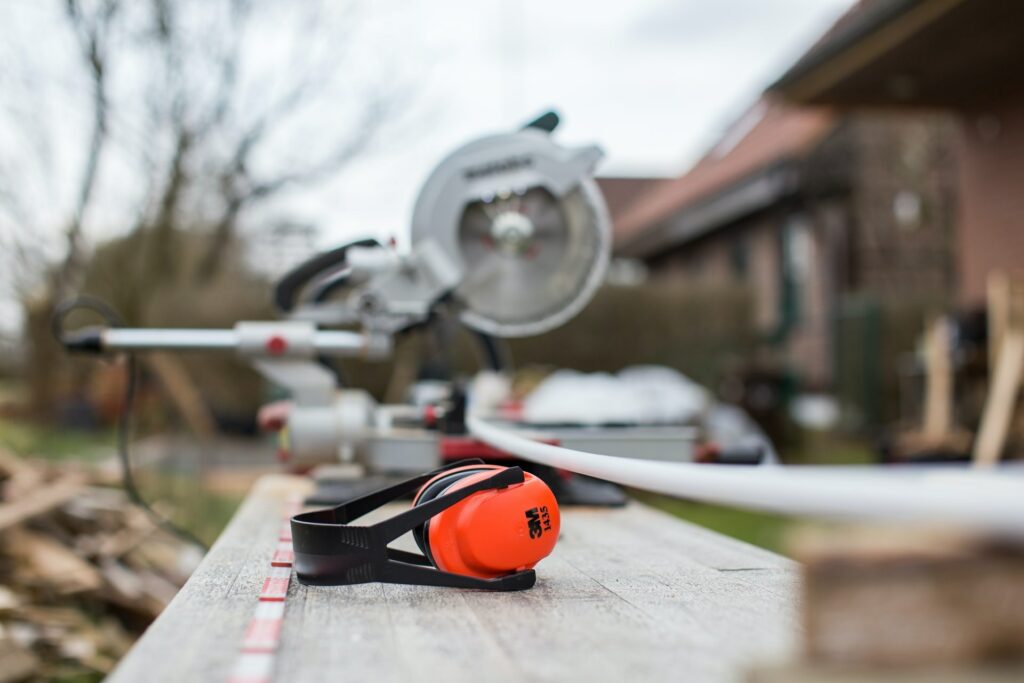In part 1, we saw that research shows that we are happier when we are focused. I argued that although there are many reasons we may believe we cannot concentrate (too much noise / need another coffee / it’s Friday), these are all essentially excuses.
If we are not focused on our current activity, this must be because we are reacting to unrelated interruptions (including our own thoughts). I call this the distraction mechanism. To improve our focus, we can practice the skill of not reacting to interruptions (the focus mechanism). In doing so we become better at focusing regardless of our environment or state of mind.
This may be an eye opening realisation if you are in the habit of making excuses about your environment, convinced you must create the perfect environment before you can focus.
So my environment doesn’t impact my concentration?
No, that would be an exaggeration. It’s very helpful to understand the moment-to-moment mechanism of how we become distracted, and more importantly, to practice not reacting to interruptions. I believe this is the first and most important step in improving our ability to focus.
But these moment-to-moment mechanisms of distractions or focus are not the full story. We often have the sense that our environment or state of mind is limiting our focus, and there can be some truth to this.
Worst case scenarios

Let’s look at some extreme environmental scenarios:
- It’s a hot summer’s day of over 30C, and you don’t have air conditioning.
- Construction work is going on next door, and the drilling noises never seems to stop.
- You have the flu: your muscles are aching, you have a headache and a fever.
- You stayed up late last night and got drunk, you had very little sleep and now you have a hangover.
Clearly, in all of these scenarios, your ability to focus is going to be impaired. If you’ve practiced non-reactivity to interruptions, you may do better than you would otherwise. But even if you push on through your tasks in these difficult environments or states of mind, you will surely struggle and need to rest and recuperate more later.
Best case scenario

Let’s imagine a practically ideal scenario:
- You’ve had a good night’s sleep and don’t feel tired.
- You have a co-worker or boss to whom you will have to explain if you don’t make progress on your tasks.
- Delightfully melodic jazz music (replace with your favourite genre) is playing at just the right volume.
- There are no personal difficulties in your life right now.
- The lighting in the room is bright enough to keep you alert, but also soft without any glare.
- You have your favourite drink to your side: coffee, tea, juice or whatever it may be.
Do you easily imagine how you would get things done under such perfect conditions? It’s still possible that you will struggle to focus in this scenario, but if you do, when everything in your environment is so perfect, then you can rule out environmental factors. The only explanation is that you are stuck in the distraction mechanism of reacting to interruptions, internal or external. If this is the case for you, you need to practice non-reactivity to interruptions rather than looking at improving your environment.
How does your environment impact your ability to focus?
Hopefully, those worst case scenarios will be rare, but we can’t always create the best case, perfect environment. Even if we set up the right conditions in our physical environment (lighting, noise levels, etc), our internal, emotional environment may be a different matter. Sometimes we have personal difficulties or we share in the difficulties of family or friends, and this occupies our mind-space which would prevent us from having what we may see as the perfect conditions to focus.
So realistically, our environment will not always be perfect. Once we accept this, we see that it is better to learn to focus without perfect conditions.
There may be environments which are so terrible when we are trying to focus that it is best to remove ourselves. But when we are in a reasonably healthy, but imperfect environment, then we have enough conditions for focus.
If we can easily make some further optimisations to improve our environment, then we can do that, but we shouldn’t obsess. It is the moment-to-moment practice of noticing interruptions and not reacting that will make more impact on our ability to focus, and thus we should place most of our efforts on this developing our ability in this practice.
Changing your environment
Often, when I’m struggling to focus, I change my environment. For example, I go to a cafe and work there. Somehow, even if I’ve been completely distracted whilst trying to work at home, I tend to have no problem getting things done in a cafe.

If, as I’ve claimed, our environment isn’t as important as noticing interruptions, why does this seem to work?
In the cafe, many aspects of the environment are different to my home:
- I am surrounded by people, and interact with others (if only a little).
- I am immersed in the sounds of the cafe: music, chatter, or the barista grinding coffee.
- The lighting is different (hopefully better, but certainly not always).
- The temperature is better controlled in summer, with air conditioning (it’s often slightly chilly).
- I can drink barista-prepared coffee from an espresso machine.
- There is a greater sense of spaciousness.
My inner environment has changed too. Having walked or cycled to the cafe, my body is active and I am more alert and aware.
Perhaps most crucially, I came to the cafe with an intention to work. I invested in this intention, by making the trip here and by spending money on a coffee. My time to fulfil this intention is limited: once I finish my coffee, I’ll feel awkward if I’m sitting here too long – this constraint also helps me to concentrate.
Triggering a habit of focus
Having set this strong intention and invested in it, and with limited time, if an internal interruption arises (an urge to check social media, for example), I am far more likely to stop myself following through on that potential distraction.
Doing this regularly, I begin to associate the cafe environment with these intentions, the mindset of focus, and not responding to interruptions. The environment is constantly reminding me of those intentions which now come to mind whenever an interruption arises.
A dedicated workspace

Over the past year or so, since the COVID-19 pandemic began, many have been working from home instead of at the office.
There are many positives to this: we do not need to commute, we are able to take deliveries, and have more possibility to do tasks around the house like washing clothes or baking bread. Many people prefer their home environment to the office, and claim to get more done because they are interrupted less than in an office. Some would like to continue working from home in the long term, at least to some extent.
However there are also many potential downsides of home working. The mixing of our home and work environments can also lead to a mixing of our home and work lives. We are less focused at all times: when we are supposed to be working, we have additional distractions in our home environment, and during our leisure time, we may find ourselves thinking of work more often.
What does the evidence show about our productivity when working from home?
A recent study of workers at a large IT services company shows that output has remained steady during this work from home period, but in order to sustain this output, hours worked increased by around 30%. So, per hour worked, people were significantly less productive working at home.
The may be many reasons for this drop in productivity, (such as being interrupted by children, or communication being more long-winded than in an office), but I suspect the main reason is that is really is difficult to focus on our work in the same space that we enjoy our leisure time.
When we eat, sleep, work, and play in the same environment, everything in our lives becomes a bit blurred. It is better to have distinct environments for distinct parts of our lives, where each of those environments serves as a cue for the behaviour which we are engaged in.
As creatures of habit, having a dedicated work environment helps to re-enforce the habit of work. In the same way, having a dedicated space for leisure helps us to unwind and relax, and having a dedicated space for sleeping improves the quality of our sleep.
Exercise: Move to a different environment
Whatever activity you are trying to focus on, try going somewhere different to do this.
You can choose any environment, perhaps a cafe, the library, or a co-working space. If it’s not possible for you to work in a public space, try to find a different space in your home (even if it’s just the other side of the room).
Ideally your chosen space should take some effort to get to (a walk or a short cycle ride is ideal). It should be somewhere you do not frequently use for other purposes. If you can reasonably afford it, spending a little money in order to access the space is helpful, as you will feel more invested in your task.
Before going to the space, make sure you are crystal clear about your intention: what are you going there to do? Know how long you plan to stay, and do not overstay. If you need to take a break, leave the space so as to preserve the association between the activity you are focusing on and that specific environment. Don’t browse social media at the library, that’s not what you’re there for!
How did it go? Please share your experience of this exercise in the comments!
The author’s experience
Changing my environment is perhaps the most effective technique in my focus toolkit. It’s been five years since I was required to always work in an office. Now, as a freelancer, I often work at home (in a dedicated space reserved for work) but I also make use of other spaces.
Often, I’ll start my working day at a cafe for a couple of hours. I find it far easier to get started and establish a mindset of focused attention by getting out of the house. After some time I become more engrossed in my work, then I’ll typically continue my work at home.
Your environment is just one aspect of focus
In this part of the How to Focus series we have been looking at the role of the environment on our ability to focus. We’ve seen that whilst it is clearly true that favourable conditions in our environment can make it easier to stay focused, it is not wise to look for perfection, and instead to focus on practising the core skill of not reacting to unrelated interruptions. We’ve seen that moving to a different space with a specific intention tends to be far more effective than optimising aspects of our current environment.
I hope you’ve enjoyed this post – please do apply what you’ve learned by trying the exercise, and go back to do the exercise from Part 1 – The Wandering Mind, if you haven’t already.
In this series, we still have many aspects of focus to explore: from common productivity techniques to the specific obstacles posed by being online.
Please come back to mindful.technology in future for the third post in this series, or follow us using one of the methods below to be notified of new posts.